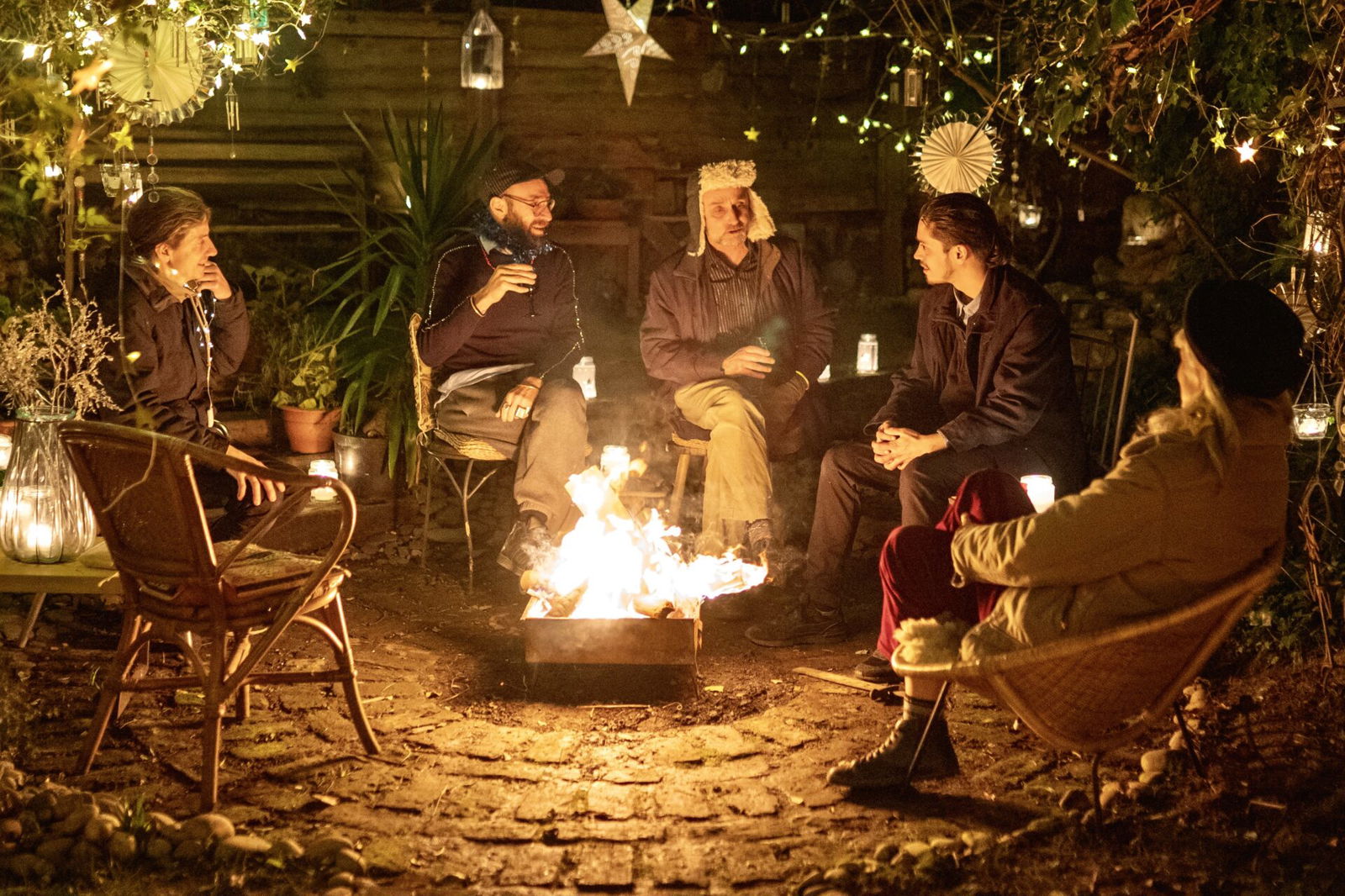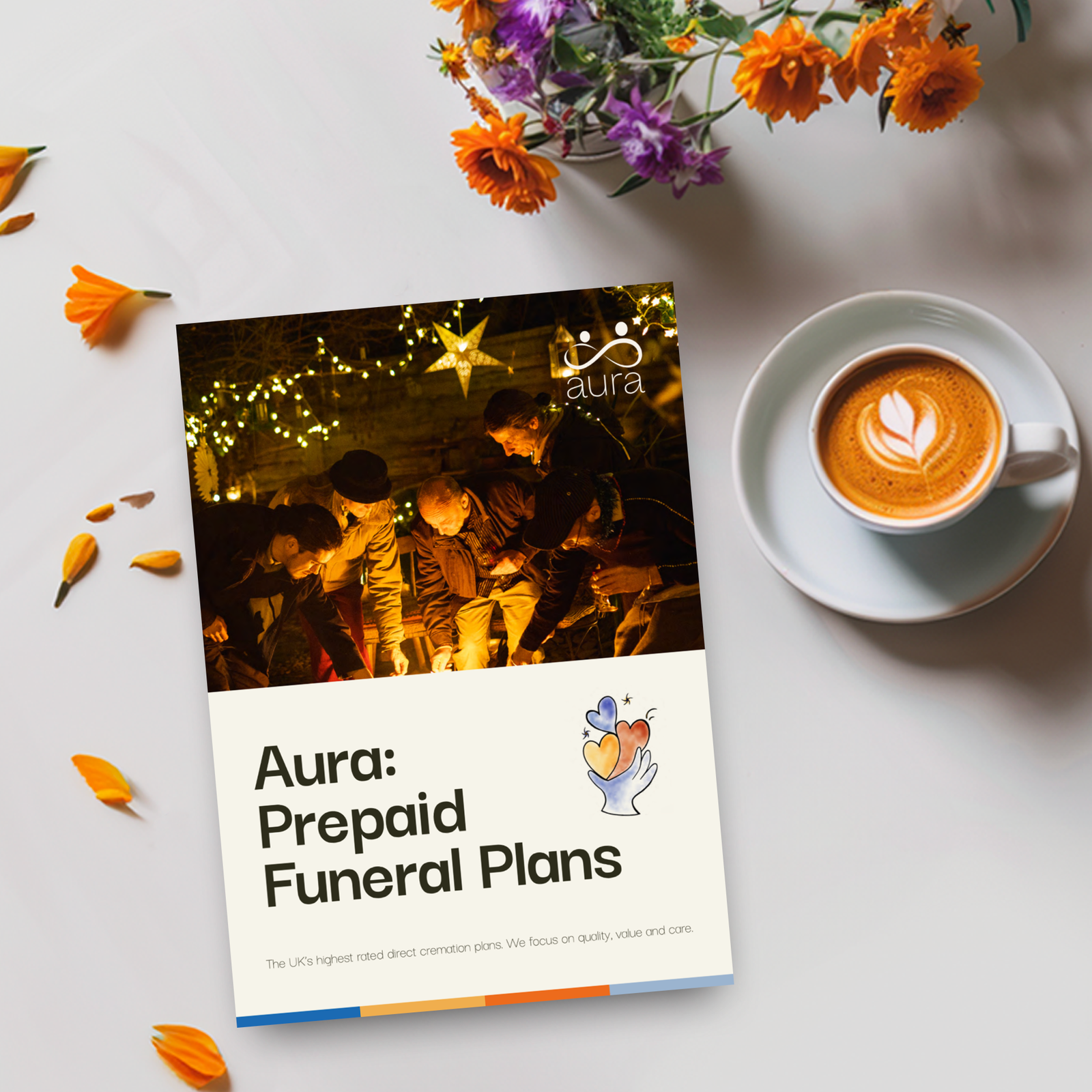





Written by Adam McIlroy.
16 minute read

Article reviewed by Judy Carole, Published Author on March 14, 2025.
Effectively remembering a loved one is an important part of the grieving process. Finding the right way to pay respects to them, whether through new family rituals or collecting written or photographic memories together, can help us to heal.
We wanted to put this article together to suggest different ways to remember a loved one. Whether you’re looking for meaningful funeral and memorial ideas, hoping to create personal rituals, or simply trying to navigate your own grief, we want you to know you’re not alone. If you’ve recently lost a parent or someone else very dear to you – or feel that it might be something you’ll need to consider soon – we recognise the difficulty of the situation you’re in. You’re in the right place if you need to organise a funeral ceremony at short notice, or are starting to plan ahead.
Key takeaways:

The desire to actively remember a loved one, such as by holding an end-of-life celebration or starting a new ritual around their life, stems from the feeling that we need to avoid letting them fade away in our minds. At first, when we’re grieving their loss, and everything is at its freshest and most raw, it might be the case that we feel the constant need to take solace in our memories of them.
Our memories of the one we’ve lost are likely to be very vivid and clear at this time, and we could start to worry that they might become more dim and distant as time goes by. Introspection and reminiscing is a positive part of the grieving process that can bring us comfort and help give us a stable grounding as we go through the grieving process. But if we find we are living too much in the past, it can become a negative thing in our lives that holds us back.
‘Remembering’ our lost loved ones actively in some specific way, rather than simply shutting ourselves up in the vault of our minds, brings us a couple of specific benefits: Not only could we feel as if we are keeping them alive in some way, but we’ll be putting some sturdy mental guardrails in place. It will give us the space to fittingly remember them in a proper way, at the same time as helping us to avoid falling into the trap of neglecting our own lives in the here and now.
There are a few different kinds of personal rituals that can help us to cherish the memory of a loved one who has died.
The beauty of creating a memorial tradition is that it can be as big or small, as frequent or rare, and as private or public as you want. You might want to keep things simple by marking certain seasons in a way that helps you remember them, for instance by always watching their favourite christmas film on the same date leading up to Christmas Day. A simple gesture like this can help them to feel close to you, and can easily be opened up to include wider family members if they’d like to participate.
It also gives you plenty of opportunities to celebrate them according to what their interests were in life. For instance, if they were a sports fan, you could make a point of attending a match or event around the same time every year.
Lots of people today like to create a memorial keepsake box. It can be kept somewhere safe in a private place at home, or it can be displayed somewhere accessible, like the living room, so that it can be easily reached and explored. The idea behind it is to hold together many different things that help you remember a loved one who you’ve recently lost.
All kinds of things can be kept inside, from letters they wrote to you in life; to things of sentimental value, such as old tickets for events you attended together; to things like photographs of you both. Today, more and more people have creative cremation ashes ideas, such as turning their loved ones ashes into jewellery or other keepsakes, so the box can also be used to store those.
If you don’t like the idea of a memorial keepsake box, you can simply create a photo album of all the photos you have of the person who has died. Converting photos you’ve got stored digitally into physical copies can feel more emotionally significant, and having them there in a special album which you can look through whenever you like is something that many find meaningful. Not only does assembling such an album help people to feel as if they are gaining some control over the grieving process, but they’ve got something they can cherish and keep for the long-term too.
Naturally, there are also some companies that specialise in digital memorials, if you’d like to have an online back-up of your physical memories. Much Loved offers a service that lets you upload photos and videos of loved ones, and share them with family and friends; people can offer condolences and share their own stories in turn. Indeed, you can also use our own platform, the Aura Circle, to tell your own life story and share it with family members.
Another powerful act of remembrance for a loved one who you’ve lost is to honour them on dates that were special to them. A birthday or anniversary are obvious ones that many like to continue to recognise after they’ve gone. You can get together with friends and family to celebrate these dates in the way you would have done whilst they were alive, for example by going to their favourite restaurant, or going for a walk in their favourite place.

There are plenty of means at our disposal to preserve the legacy of our loved ones, from digital archiving to the preservation of memory in art.
Digital platforms for storing our data after our deaths have also started to flourish. Such services allow for the storage of video and photo data, as well as the storage of voice recordings, helping people to preserve aspects of the ones they’ve lost in ever more detail.
You can use cloud-storage apps or dedicated online services for the storage of your special memories. Which one you might select could depend on a range of factors, from whether you prefer to use an app on your phone or a web-browser on your computer; to how much data you want to store; to what your budget for storage is likely to be.
Many people find that the production of art can help them to remember their loved one effectively. Whether you’re creating it yourself, or commissioning an artist or musician to complete it for you, this can be an especially powerful way to commemorate a loved one who you’ve lost. There are all kinds of different ways that you can do this, from writing or commissioning music about them; to adapting portrait photos of them in ink or paint upon a canvas; to writing stories or poetry.
All of these avenues can lead to the production of a tribute that can keep the memory of your loved one alive like no other, and the production process itself is something that can help many people to come to terms with their loss. There’s even the burgeoning practice of putting cremation ashes in a tattoo; the ashes of a loved one can be infused with tattoo ink and then used to create a meaningful piece of body art for someone they’ve left behind, whether a picture of them, or words they once spoke.
When someone dies, many people begin to gather anecdotes and stories about them, usually because they are writing a eulogy for their funeral. Aside from that, though, we can find a lasting worth in maintaining a record of the funny or interesting things someone has said and done, whether in the form of a series of private blog posts, or a scrapbook. Others like to make a video consisting of interviews with various people who knew the person who died, discussing their recollections of them. All these things can be easily shared with wider friends and family, as desired.
Recording a person’s wit can provide a particularly sharp way of keeping their memory alive, and, if reminiscing collectively, can very vividly bring them back into the room with those who are paying respects to their memory. You may also find it helpful to use a simple eulogy template when gathering these memories — whether you’re planning to deliver a speech yourself, or just want a structure for reflecting on someone’s life.
A way of remembering a loved one that many find particularly special is to donate to or volunteer for charitable causes which they were particularly passionate about in life.
It’s fairly common in life for some to champion a cause, such as homelessness or the education of disadvantaged children. When our loved ones invest their time and effort in these causes, we see them at their best; by taking up the mantle after they are gone, not only can it feel like an act of love towards them, it also has the added benefit of doing good for others. In other cases, people can start charities fighting, for instance, the illness that they have ended up facing at the end of their lives, such as cancer or diabetes.
Donating to such causes, or maintaining their own charitable legacy after they’re gone can be a personally meaningful and socially impactful tribute to their memory.
Bringing in an element of the creative, spiritual, or religious can help to bring a lasting sense of comfort and closure to those who are remembering a loved one.
When we’re being creative, we’re often at our most alive, so if we can link our creative reflection to the memory of a loved one we’ve lost, it can be especially meaningful. Lots of people find the practice of journaling helpful, especially whilst they’re in the early stages of grieving, for making sense of their feelings and keeping some inner balance. It’s also perfectly natural to feel like you miss the other person when they’re not there, so you can even write letters to them to share your feelings in a more meaningful way.
More and more people these days are becoming mindful, and developing an interest in meditation. App-based services like Headspace and Calm have become particularly popular since the Covid pandemic, after we all started to become more conscious of our mental health needs. Meditation can help us to gain a moment of inner-clarity, and organisations like these start by teaching the basics of meditation before becoming more complex. Being mindful can help you to avoid feeling as if you are being swept along by your memories of the person you’ve lost, slowing down their flow a bit and giving you a sense of peace whilst surrounded by them.
Of course, if we’re religious, all of the above suggestions may be open to us like anyone else, but we also have some faith-based options for reflection at our disposal which can support us in remembering a loved one we’ve lost. Simply lighting a candle to them at a shrine or chapel in the local church can help us to feel more connected. We can talk with religious figures about grief, loss and the afterlife, and we can also say a special prayer to their memory in our places of worship. The decline of religion in the UK has had a big impact on our funeral practices, but these faith-based practices are still incredibly important for many people, and can provide a special kind of comfort that may not be available through other means.
We hope that you’ve found this article has given you some ideas and been useful. If any questions have arisen through anything we’ve written, whether about coping in general with the loss of someone dear to you, opening up conversations about remembering a loved one with your family, or how best to remember the ones you’ve lost, we are here to help you and point you in the right direction.
At Aura, we are proud of the compassion, patience and kindness with which we offer our funeral services. Our direct cremation services are open to both those needing to sort out something at short notice, as well as to those thinking ahead with a prepaid funeral plan. Either way, it’s our wonderful, caring Aura Angels who’ll guide you or your family by the hand through the difficult job of funeral arranging for you or someone dear to you. They’re not only funeral-arranging experts, but they can listen to you if you need to talk about what you’ve been going through. We’re there for you on the phone, whenever you’re ready.
We are family-run, and were founded by Paul Jameson in 2019 after his motor-neurone-disease diagnosis. He wanted to establish a company that helps families in the UK to benefit from his own experience with end-of-life planning. We are run today by him alongside his son, David (our CEO), and a family friend called Ben (our
COO). Our mission is to provide a service quality that never drops below what Paul would want for his own family. We’re also the UK’s top-rated provider of ‘cremation services’ on Trustpilot, with a score of 4.9/5 stars.

If you’d like to know more about how to plan a cremation with Aura, our brochure is a helpful place to begin.
Our funeral plans are a helpful way to put everything in place for you or someone else.
When the time comes, our experienced team will be here to guide you through each step, offering support and advice whenever you need it.
To find out more about how our plans work, what’s included, and our story, you can request a brochure by clicking the link below. We will then send you a copy by email or First Class post—whichever you prefer.
Remembering a loved one helps us process grief, honour their legacy, and maintain an emotional connection with them. It can also bring comfort, promote healing, and provide a healthy outlet for coping with loss
Some common and meaningful ways include:
Creating personal rituals or memorial traditions
Assembling a keepsake or memory box
Making a photo album or digital archive
Celebrating them on important dates (birthdays, anniversaries)
Donating to a charity they supported
Expressing your feelings through creative arts, writing, or journaling
A memorial keepsake box is a personal collection of items that remind you of your loved one. It can include letters, photos, tickets from shared events, jewellery, or even ashes turned into keepsakes. Store it somewhere special or display it where you can easily access it.
You can celebrate in a way they would have appreciated:
Visit a favourite place they loved
Cook their favourite meal or watch their favourite film
Light a candle or share stories with family and friends
Organise a small gathering or celebration of life in their honour
Yes. You can use:
Cloud storage for photos, videos, and voice messages
Digital memorial platforms like MuchLoved or Aura Circle to share memories with others
Online memorial pages where friends and family can add tributes or condolences
Art can be a powerful way to process grief. You might consider:
Writing poetry, music, or a personal story about them
Painting or commissioning a portrait
Creating a scrapbook or visual tribute
Getting a memorial tattoo, sometimes using ashes infused into the ink
Sharing stories about the person who died can bring their memory to life and provide comfort. Collecting anecdotes from others can be compiled into a eulogy, blog, or memory book. It’s a great way to ensure their personality and legacy are remembered by others.
Donate to a cause they cared about
Volunteer with an organisation they supported
Start a charity or fund in their name
These acts help you continue their legacy and create something positive out of your grief.
Absolutely. You can:
Light a candle in a place of worship
Say a prayer or hold a vigil in their memory
Reflect through meditation or mindfulness
Speak with a religious leader about grief, loss, and the afterlife
Yes. Writing letters is a therapeutic way to express feelings, say things left unsaid, or feel connected to them. Many people find comfort in keeping a grief journal or writing messages to their loved one during special occasions.
It’s natural to want to hold onto memories, but it’s also important to live in the present. Creating healthy remembrance rituals and seeking support—through friends, family, grief counselling, or support groups—can help you honour their memory while continuing with your life.
Yes. Gathering with family and friends to share stories, watch home videos, cook their favourite meal, or take part in a shared hobby can bring people together and provide collective comfort.